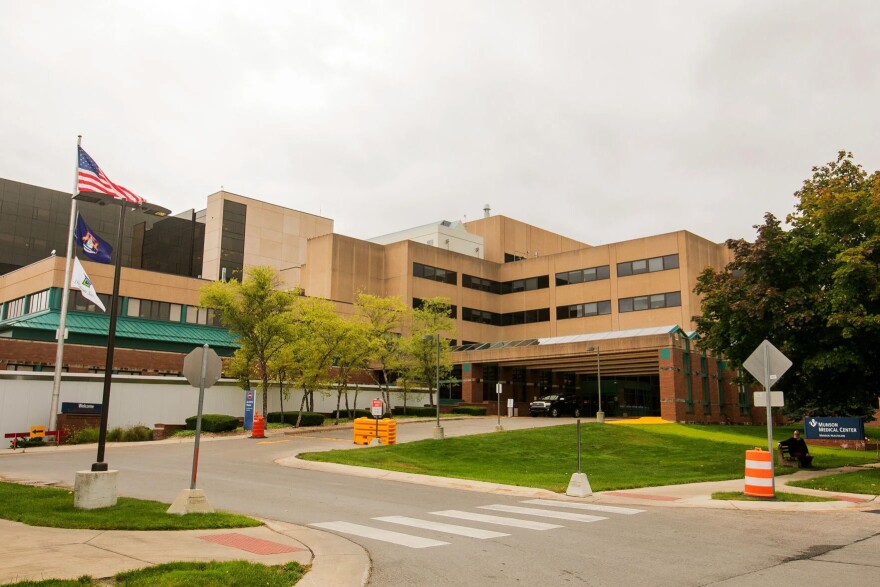Munson Medical Center experienced a record-high intake of patients in recent weeks.
The hospital is the largest employer in the region, offering 442 beds and acting as a referral center for the entirety of northern Michigan.
The center is known for its neonatal intensive care unit and the Webber Heart Center, which houses a team of cardiologists and cardiovascular surgeons.
Joe Hurshe, president of Munson Medical Center, said the hospital has been operating at- or near-capacity most days in the past three weeks.
Summers are usually busy for the center, Hurshe said, yet the past week has been especially crowded with respiratory issues associated with allergies and trauma injuries from “the great outdoors.”
Tori Sykes, director of Nursing, Emergency Services and Nursing Operations, said that the emergency department also has experienced an increase in patients with strokes or stroke-like symptoms.
On Monday, July 14, the center’s emergency department alone saw 193 patients — the most that she has seen in a day since 2018, Sykes said.
Hurshe said the recent surge in patient intake is primarily because of the steady increase in Traverse City’s summer population.
Predictive modeling has shown that the hospital is likely to continue to experience high patient numbers for the remainder of the summer, he said.
Recently proposed cuts to Medicaid also may be contributing to the surge, he said. The One Big Beautiful Bill Act is estimated by the Congressional Budget Office to increase the number of people without health insurance by 16 million in 2034.
“There appears to be an urgency on the part of patients to want to present for healthcare and take the initiative to no longer delay, defer or postpone care,” Hurshe said.
This surge in patient intake is not just an issue in the Traverse City area, Sykes said. “We’re also seeing sicker patients just in rural Michigan as a whole,” she said.
Munson Medical Center has experienced a “critical nursing shortage” in recent years and some employees of Munson Medical Center have expressed frustration with the hospital’s practices.
Sykes said that high patient intake levels can “definitely” be stressful for the frontline teams, many of which are picking up “lots” of additional shifts.
Though pay incentives are put into place for extra hours worked, the weight of being understaffed can be felt.
“The teams feel the high volumes, they’re very dedicated to what they do,” She said. “They’re very professional, they step up. They adjust to high numbers, but we do see it where we need more staff.”
Despite the strain of high volumes, Sykes said that improvements within the hospital’s processes have resulted in a 2% “left without being seen” rate, the lowest that the center has seen in years.
She said getting patients through the emergency department faster and accelerating the inpatient process allows patients to access care and be discharged quicker.
Hurshe said these capacity management and patient throughput efforts were a vital part of handling the recent surge.
“Because we’ve been so active, we’ve had no choice but to become more efficient in how we safely manage patient care and how we safely move patients throughout our health systems,” he said.
Hurshe emphasized the importance of patients knowing their options for medical care, which include Ask-A-Nurse, primary care, virtual urgent care, in-person urgent care and the emergency department. Knowing which one to choose results in fewer transfers and faster access to treatment.
He said 911 calls and visits to the emergency department should only be made in the case of life-threatening conditions.
This story was produced in partnership with the Traverse City Record-Eagle as part of the Michigan News Group Internship Program, a collaboration between WCMU Public Media and local newspapers in central and northern Michigan. The program’s mission is to train the next generation of journalists and combat the rise of rural news deserts.



